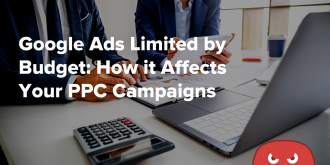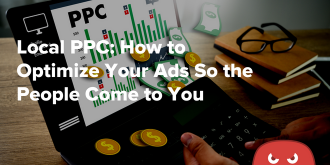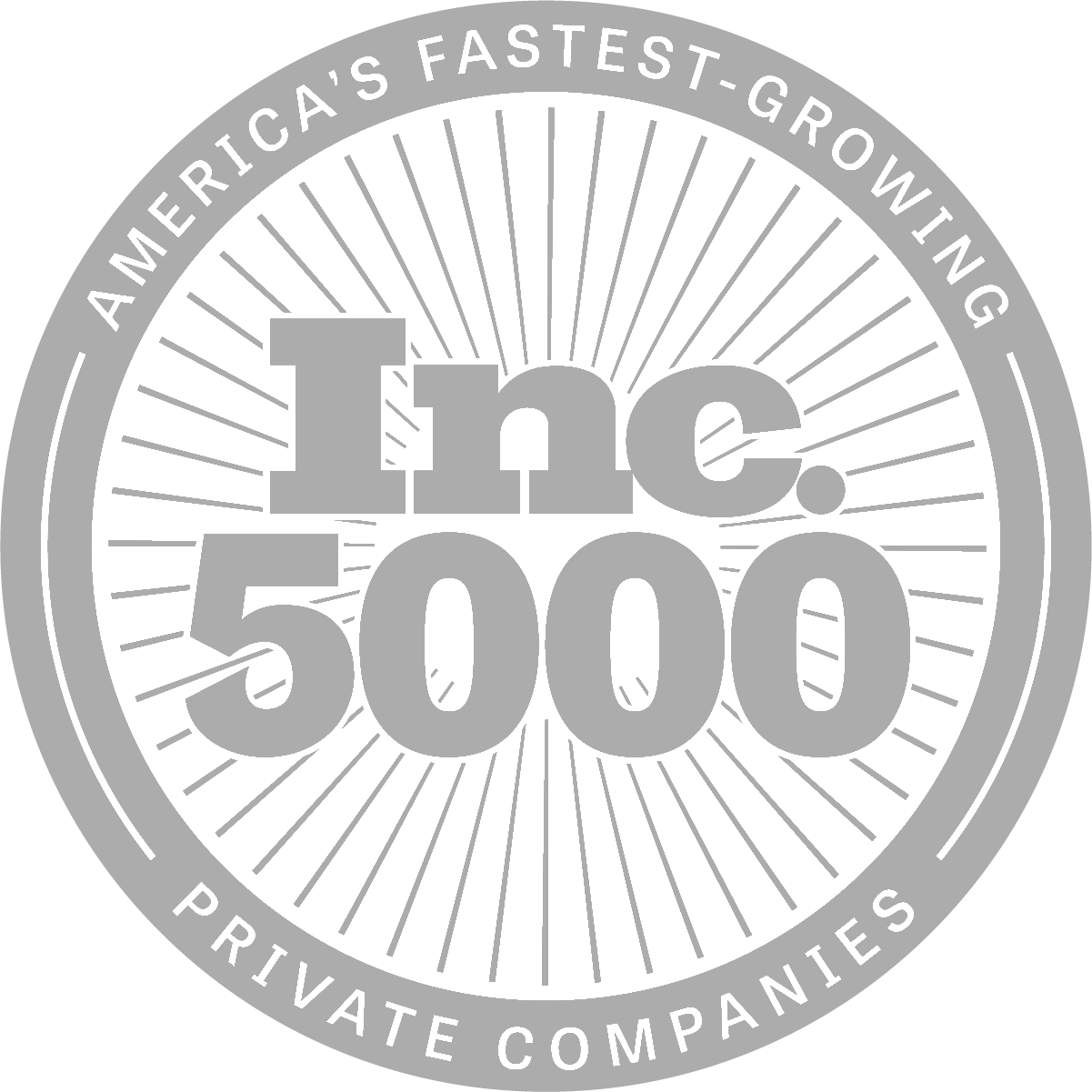Quick Links
Have you been thinking about buying pay-per-click advertising for your business? Many businesses wander down the road of paid ads. In fact, nearly all small businesses advertise and about 45% of small businesses use PPC regularly.
So, what is PPC? In basic terms, PPC is when an advertiser pays for an advertisement each time it’s clicked.
The ad is displayed prominently in a Google search so more people are likely to see it when searching for specific products or services. The result is that potential customers see your business first.
While very effective if done right, there’s no question PPC can get complicated quickly. Especially if it’s your first time.
As more businesses than ever are setting up these ads to compete in the digital marketplace, we wanted to share some important things you need to know before buying PPC. These tips will save you money and time in the long run.
Ready to succeed? Keep scrolling!
What are The Different Types of PPC Marketing?
Successful ad campaigns require ongoing management and can take time before you begin to see results. Certain risks do come along with PPC like ad placement or a competitive keyword. So, it’s best to choose the right type of ad campaign that fits your goal.
Here are a few different types of PPC:
Paid search marketing
Paid search marketing is one of the most commonly used types of PPC. Providers like Google Ads and Bing Ads, show your ads to people who actively search for different keywords.
You’re able to set up campaigns by writing an ad copy, selecting the right keywords, and choosing a landing page for your website.
Display ads
Display ads are basically just images such as banners, video ads, and text ads that appear on websites other than SERP to target a particular audience.
What these types of ads do is link back to your website. They generally return a lower click-through rate than search ads, but they can be more useful if brand awareness is your online marketing goal. In fact, ads can increase brand awareness by 80%.
Social Media Advertising
Social media advertising involves ads that are placed on social media platforms and are targeted at individual users. Social networks tend to utilize an individual’s information so the ads are fairly relevant and based on interactions within a specific platform.
There are a few different types of social media ads, such as Facebook Ads, Instagram Stories Ads, and Conversational Ads which are found on Twitter. All of these platforms have different types of ads, but the purpose of them all remains the same.
Retargeting PPC advertising
Retargeting ads are interesting because they are more targeted by Google’s algorithm and personal to a specific user based on their previous online searches and demographic.
For example, have you ever noticed that you tend to see ads for a product you’ve just searched for? A user who searches for a product such as an “iPhone” would see more display ads for that product.
Price comparison website advertising
Price comparison or aggregator sites gather and display prices and special offers. That may sometimes include comparison websites or hotels and travel. People will often click through the offers and buy directly from a merchant or from the price comparison website itself. Actually, 65% of customers click on PPC ads, which increases conversion rates.
Affiliate marketing
Affiliate marketing uses performance-based payment. Payment is usually aligned with results. You can set up affiliate marketing pretty easily, or even outsource to third-party provider affiliate networks. Affiliate marketing isn’t just for bloggers and YouTubers, about 90% of advertisers say that affiliate marketing is an essential part of their marketing strategy.
The Difference Between PPI, CPC, and PPC
So, what is the difference between PPC and PPI?
PPC is a form of paid advertising where you are only charged when someone clicks on your ad. With a PPI or pay-per-impression, you are charged anything a user goes and searches and your ad appears on the results page. Though there’s usually a lower conversion rate that is associated with PPI, the cost is usually less expensive.
Another question you might ask is if you should use PPC or CPC?
Let me explain:
As I mentioned, PPC is pay per click, but CPC is cost-per-click. PPC is a pricing model for digital advertising, whereas CPC is more of a metric that measures cost-per-click. The main difference between PPC and CPC is mostly marketing tactics.
Different ad types have different goals and purposes that are used to target different stages of digital marketing.
It’s important to understand which ad would best fit your commerce plan, which keywords your targeting, and what stage of the buyer’s journey your audience is at. That way you have more control over which ad your audience is shown. By doing so, you don’t waste time and resources on paid advertising and you can get the most from your money.
Will PPC Work For Your Business?
If people are searching online for your products or services, PPC literally puts you up there at the moment they’re searching for you.
Think about yourself for a moment. What’s the first thing you do when you want to buy a new running shoe or hire a plumber to fix your leaky sink?
You search Google for the “best running shoes” or “affordable plumbers.” Next, you’ll read through the search results to find products or services that are top-rated, affordable, and have a bunch of positive reviews.
This is how buyers behave today. It doesn’t matter if your business is local, national, or global, e-commerce or service-based, buying PPC can help you appear in searches first.
The answer to the question is yes! PPC can work for your business.
Besides brand awareness and CTR, here are a few other things PPC can achieve:
- Generate more leads
- Improve click-through rates or CTR and quality score
- Give companies more control
The most compelling reason to use PPC ads is that they can help you achieve a large number of marketing goals such as producing more qualified leads for your business.
Improving click-through rates in search campaigns is an important goal that marketers usually want from paid online advertising. For example, if your PPC ad has 1,000 impressions but only 1 click, that means it’s a 0.1% CTR. As an important metric, CTR lets you know how relevant your target audience is finding your ad.
One reason that PPC is great for giving businesses more control is that it is based entirely on budget. It offers a larger level of control than traditional paid advertising. One of the main reasons why businesses use PPC is because you have more control over how your ad budget is spent.
If Your SEO Is Doing Well, Should You Still Invest in PPC?
Smart business owners understand the importance of search engine optimization, Google Analytics, and keyword research. They research their customers and incorporate relevant keywords throughout their website to enhance Google’s ranking. Some businesses even have mobile apps developed in addition to their search engine marketing strategies.
These same owners work with agencies like The HOTH to generate high-quality content and set up backlinks from reputable sites. All of these tactics boost their organic SEO, but sometimes it’s not enough.
Around 60% of web traffic from search engine results pages bounces off your website and never returns. For whatever reason, they visited a few pages, clicked a few buttons, or read part of a blog before vanishing into thin air.
But, here’s a silver lining.
PPC advertising can be used to remarket your products or services to these online visitors. If someone visits your roofing website for a few minutes and never returns, PPC ads for your service will be delivered to them through Google.
Chances are they visited multiple roofing companies online to get quotes or read about specialties. While they’re mulling over the final hiring decision, your remarketing campaign will continue engaging with them.
This increases the probability of you being hired for the job!
How Much Should You Pay for PPC?
Even before COVID-19, one of the first questions businesses asked us was about budgets. After all, most businesses don’t have unlimited dollars to spend on ads. They want to know how much of an ad spend will help move the needle.
If done right, your PPC return on investment or ROI will be well worth everything you spent. That’s also a reason to hire experienced professionals to do it for you. Our FREE PPC ROI Calculator can help you determine the correct return on investment.
Generally, we recommend that businesses set a budget of at least $1,000 per month in ad spend to get enough traffic to start seeing results. Now if you’re a lawyer or a business with a lot of competition, we suggest increasing this budget to $5,000 to $10,000 per month.
Law firm PPC, for example, has a higher CPC than other businesses. A new client more than offsets the initial advertising investment, but having a bigger budget will ensure you get those new leads.
And we can do all of the hard work for you!
Should You Outsource PPC?
One major problem in the PPC world is ad blindness. The PPC industry is well aware of a well-known issue where people simply ignore ads because they know they are ads. Statistics suggest that a majority of ads (80%) are seen, but remain ignored.
That’s why it’s sometimes best to use an agency such as The HOTH so your ads don’t get ignored and you don’t waste a ton of money, time, and resources on PPC that no one clicks on.
Our PPC Management Services include a dedicated campaign manager who utilizes advanced campaign strategies to help you beat the competition.
We keep you informed of progress every step of the way. You’ll receive weekly reports from us on expenditures, the average cost-per-click, your site’s click-through rate, a full list of leads, and more!
Our services are also customized according to your industry. Check out some of the SEO and PPC solutions we’ve provided to law firms, contractors, dentists, gyms, and more!
Setting up a PPC advertising campaign seems simple. You log into Google Ads and can have an ad running within 5 to 10 minutes. Why pay someone else to do it for you?
The problem is it’s easy to burn through thousands of dollars of cash through Google. PPC campaigns are a lot of trial and error, and without the right experience you may end up losing a lot of money.
It all appears straightforward but there are several landmines you need to clear in order to make a successful Google campaign.
The HOTH’s campaign managers are all Google certified. They have gone through rigorous training to learn the ins and outs of Google Ads, and we have experience managing millions of dollars of ad spend.
We’ve become so effective at managing PPC for businesses that Google recognized us as a Google Certified Partner.
In the end, you can do it yourself. But, why do that when you can focus on what you do best, which is actually running your business? Our experts can help grow your business using Google Ads.
It’s Time to Start Buying PPC!
As you can see, there is a lot of strategy and expertise that goes into PPC. Hopefully, you can apply some of what we discussed above to your business plan.
But, if you’re tired of experimenting with it or you’re ready to get started for the first time, you should check out The HOTH’s PPC Management Services. We offer ads for retargeting, lead generation, call-only, and more.
With optimized PPC ads, you’ll see a boost in web traffic, more customer inquiries, and most importantly, higher sales revenues.
Reach out to us and schedule a call with one of our PPC consultants and get started.








I like the PPC article, but will it work by running it in Africa at the same time targeting USA traffic?
Yes it will work, but it’s usually best to target countries using separate campaigns. So have one campaign targeting Africa, and a different campaign targeting USA. That way, it’s much easier to compare performance, control budgets and implement ad schedules.
Thanks for this PPC content. Appreciate it.